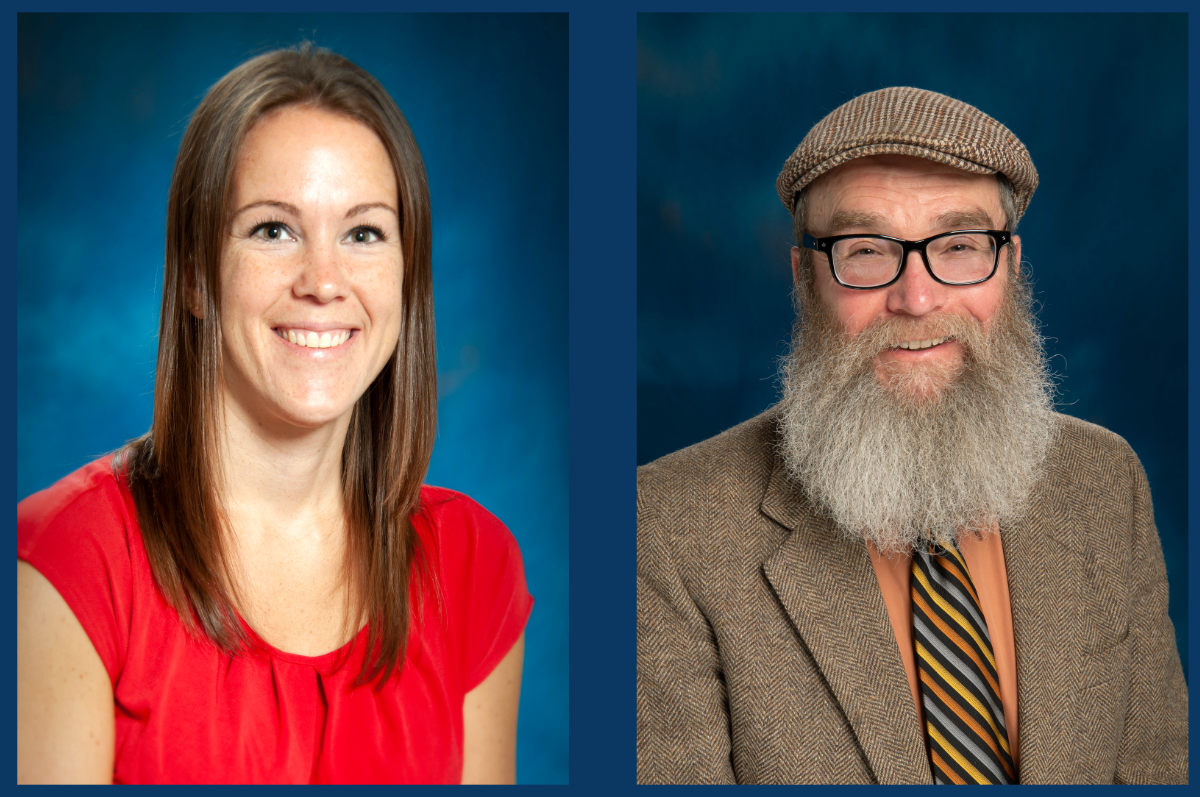February 21, 2024
SVSU professors receive first Field/Spicer Fellowship
Research projects will focus on physical activity in students, effect of plastics pollution

In its inaugural year, Saginaw Valley State University’s new Field/Spicer Fellowship in Science and Engineering has been awarded to two university faculty members for their respective research projects.
Meghan Baruth, professor of health science, will focus her research on increasing and improving physical activity among female students at SVSU. Gary Lange, professor of biology, will conduct his research on the health concerns of plastics pollution.
In her project, “Increasing Physical Activity Among SVSU Students,” Baruth will develop, implement and evaluate a behavioral physical activity program among female SVSU students. Her project will also assess the long-term effectiveness of the program (i.e., maintenance) on physical activity levels. This is especially important because data from the American College Health Association shows that only 40.4% of female college students engage in sufficient physical activity to reap physical and mental health benefits.
Findings from the intervention will be published in peer-reviewed journals and presented at regional/national conferences. Additionally, if the program is deemed effective, she plans to implement it among a wider audience.
“I feel honored and excited to have received the Field/Spicer Fellowship,” Baruth said. “I am hoping that this project can have a positive impact on the physical and mental health of SVSU students.”
Throughout her career, Baruth has implemented a number of community-based physical activity programs; however, she typically has not worked with a group consisting only of female college students.
Baruth joined the SVSU faculty in 2013. She earned her Ph.D. in exercise science from the University of South Carolina, a master’s degree in exercise science from North Dakota State University, and a bachelor’s degree in community health from Bemidji State University in Minnesota. Baruth also worked as a post-doctoral fellow at the University of South Carolina. She has published over 15 articles, has presented at four academic conferences, and has served as co-coordinator for SVSU’s Master of Public Health program.
Lange will use his fellowship award for a project titled “Health Concerns of Plastics Pollution: Research in Developmental Neuroendocrinology.” Lange, a neuroscientist who specializes in developmental neuroendocrinology, will study the effects of bisphenols exposure on certain organisms and will use his learning to gain insight into the possible effects of exposure on humans.
Bisphenols are chemicals used in the production of many plastics commonly in use, including water bottles, plastic food containers, water lines in plumbing, eyeglasses and more. When these chemicals enter the body, through ingestion or skin contact, they act as endocrine disruptors, mimicking hormones and contributing to the development of health disorders or disease. Bisphenol A (BPA) is arguably the most widely recognized, yet other bisphenols — which may replace BPA in plastics production — may pose the same health risks.
“Being awarded the Field/Spicer Fellowship is especially meaningful to me as a neuroscientist,” Lange said. “Malcom Field is such a well-respected neurosurgeon, that my receiving a fellowship funded in part through his contributions to medicine is very humbling and also exciting. This fellowship will dramatically help me make more contributions to science and to society.”
Lange joined the SVSU faculty in 1995. From 2016-2019, he served as the chair of the biology department. Lange earned his Ph.D. from Michigan State University, a Master of Science from Central Michigan University and a Bachelor of Science from SVSU. He has published or presented over 13 articles and presentations while also serving as the liaison for the Council of Undergraduate Research.
The Field/Spicer Fellowship in Science and Engineering at SVSU was established through the generosity of Dr. and Mrs. E. Malcolm Field to promote interdisciplinary work that bridges health sciences, biology, engineering and technology, with a preference for projects focusing on neuroscience.
